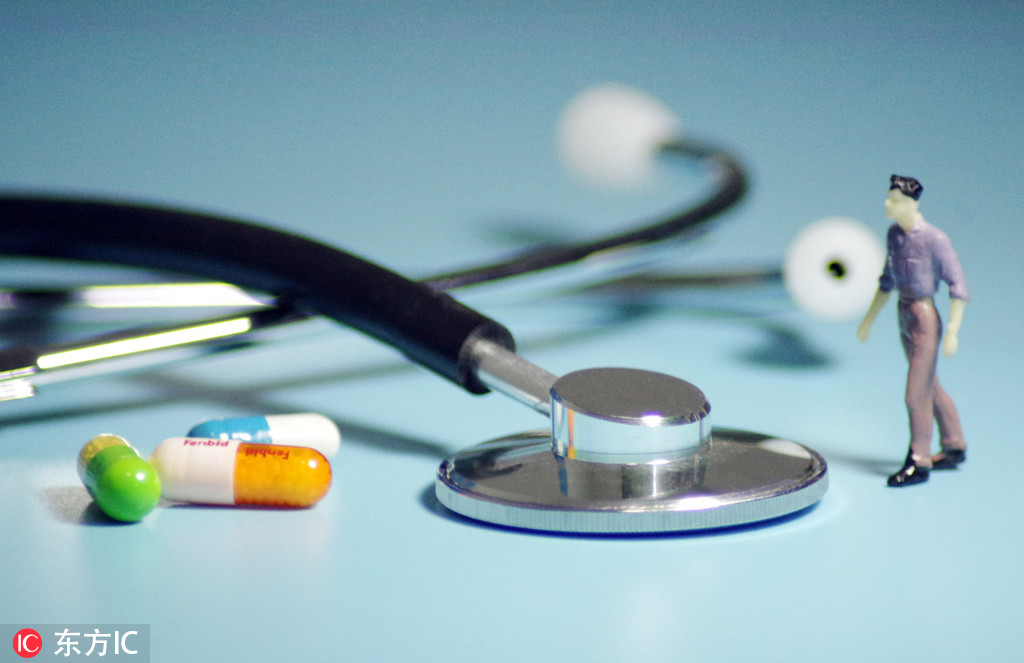New hope for people who suffer from depression


The approval of the drug esketamine by the Food and Drug Administration in the United States will significantly advance the treatment of depression worldwide. Esketamine is particularly effective for those people who are resistant to conventional treatment, or who are at imminent risk of committing suicide.
According to the World Health Organization's estimates, more than 322 million people, equivalent to 4.4 percent of the global population, suffer from depression worldwide. In China, depression affects 54 million people and is the leading cause of suicides, according to WHO.
Nearly 50 percent of all people diagnosed with depression in China are also diagnosed with an anxiety disorder. And rural areas have more people suffering from mood disorder than urban areas.
In China, the prevalence of depression is unevenly distributed across regions and subpopulations. Studies have shown that higher education and income levels are associated with lower rates of depression. Women and older people, particularly those who live in the central and western regions or rural areas, are more likely to experience depression. Among women, one in seven experiences post-partum depression, and about half of them start experiencing symptoms during pregnancy.
Depression is a state of low mood which can affect a person's thoughts, behavior, feelings and sense of well-being. Its symptoms include sadness, inactivity, difficulty in thinking and concentration, and altered appetite and sleep. Many depressed people have feelings of dejection and hopelessness that may drive them to suicide.
Depression can be a short-term or a long-term condition, and can happen at all ages. It can begin during childhood or during the teenage years. In the US, because symptoms of depression among teens are often missed by their parents and teachers, the American Academy of Pediatrics recommends regular depression screenings for all adolescents and youngsters between 11 and 21.
Clinical depression among the elderly is also common and is frequently confused with the effects of other illnesses. In China, many depressed patients don't seek help because of the stigma associated with mental health issues. Also, mental illness is seen as evidence of weakness of character and even of family shame and, as a result, a collective loss of face for the whole family.
"It is simply unacceptable that people who are already struggling with depression should feel stigmatized or blamed for their condition. This is a clearly diagnosable medical condition, and it is treatable. We must remove the stigma and the shame, by actively and openly supporting our friends and family members who are experiencing depression," says Bernhard Schwartländer, former WHO representative in China.
Aside from the effects on health and on people's well-being, depression exacts a heavy economic toll on individuals, families and on society as a whole. It is estimated that depression and anxiety cost $1 trillion worldwide in lost productivity. In China, depression costs $7.8 billion annually, from lost productivity and medical costs.
China has about 23,000 psychiatrists with credentials, much fewer than Russia and the United States. This number is totally inadequate to respond to the mental health needs of the population. An immediate response would be to improve the mental health training of medical and paramedical personnel and teach them how to better recognize the cases of depression.
Rural areas and marginal areas of big cities are underserved by mental health professionals, and more financial incentives need to be allocated to medical and paramedical mental health professionals working in those areas. Although mental health diseases account for almost 20 percent of all illnesses, they takes up only 2.5 percent of all public health expenditure.
There are known, effective treatments for depression, but fewer than half of those affected by it receive such treatments. As depression is on the rise globally, the approval of a new drug to treat cases resistant to treatment is most welcome, and necessary, news.
The author is an international public health consultant.

































